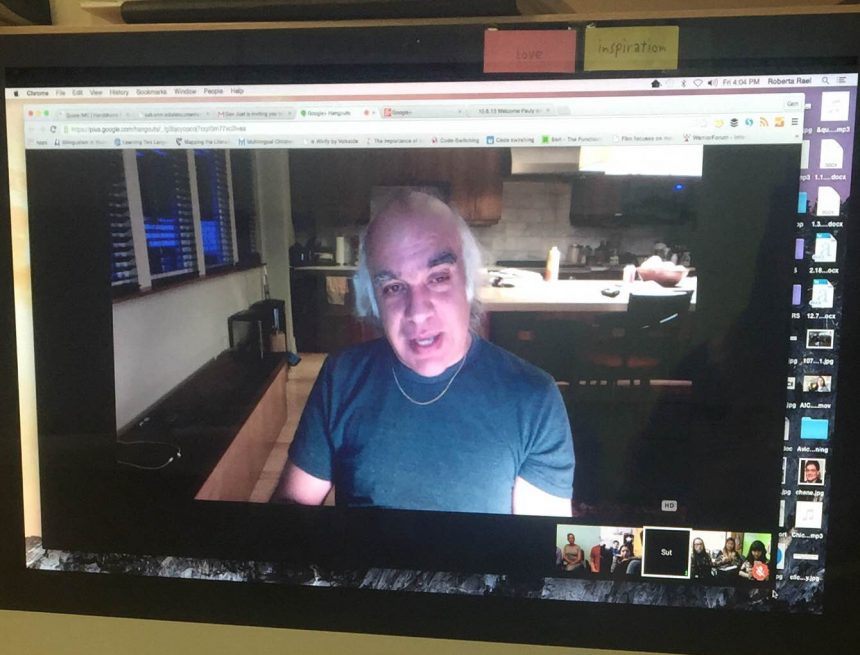Four years old – laying on the living room floor, and listening to my sister, Monica, singing along to MTV music videos. Through her, I also learned all the words, singing Jewel and Gwen Stefani. Ten years later, I’m getting ready for school and still watching MTV. Suddenly, looking back and forth from the TV to the mirror, I had this moment where I realized the women on MTV don’t look anything like me. I felt like I was separate from reality, at first, and then realized what’s on television is not an accurate reflection of reality. Those women were not me, and there was no way I could make myself those women.
This is why I appreciated that Sut Jhally’s Media Education Foundation began with deconstructing how women were represented in MTV music videos. Sut Jhally is a Communications Professor at the University of Massachusetts at Amherst, and also the Executive Director of the Media Education Foundation, which is an organization that creates films that question and critique our mass media.
I was lucky enough to connect with him across the country, via our GJ Google Chat. I was looking forward to it because the concept of representation is so overlooked by the majority of our society, and it’s so difficult to challenge it. I think Sut Jhally challenges it well, by simply explaining how fish aren’t going to question the water that they are in. They’re not even going to discover that they’re inside water. We are submerged, without even realizing it. This allows our realities to be flipped and re-arranged by whatever stories we are exposed to.
What I admire about Sut Jhally is his fearlessness to say that no story is natural. Story-telling may be natural component of our lives as humans, but the stories themselves are not. We must be careful about how we interpret these stories, who is telling the stories, and who the stories are about. Power really resides in our stories, and as Sut Jhally said, we only understand ourselves through story. All parts of our lives, our histories, our cultures, and our futures are stories, imagined or spoken or written. That’s another powerful idea that he touched upon – those who control our stories control our imaginations, and decide our limitations or our freedoms. We have to face these uncomfortable realities in order to truly be independent and free in our imaginations, and therefore in our actions. We’ve got to open up the margins. We’ve got to be a fish challenging water.
I want to thank Sut Jhally for not only helping me become a better critical thinker, but for encouraging me to remember that storytelling should tell the truth and empower. Through this, I can strive to stay true to myself, amplifying voices that need to be heard, never losing the vision but always looking to expand it.


Leave a Reply